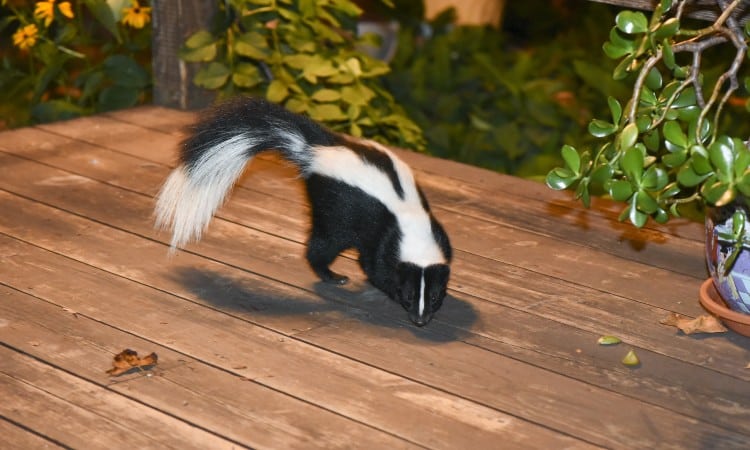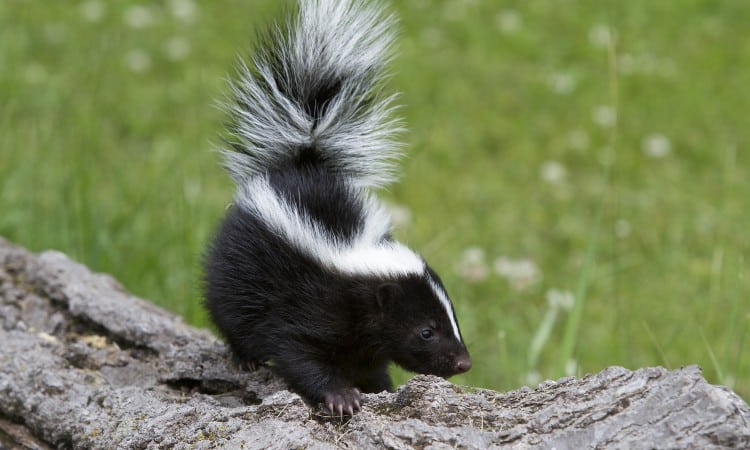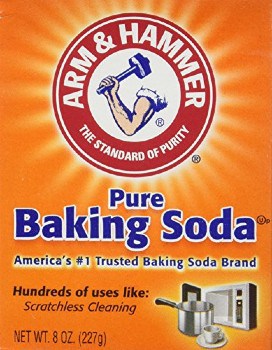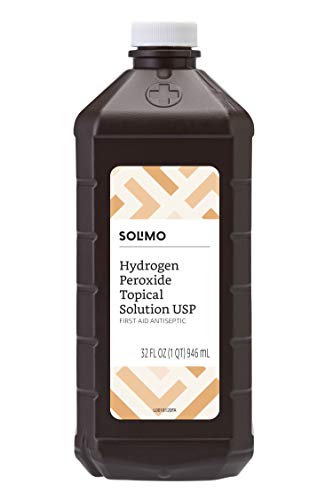If there’s one smell that is universally hated, it’s the smell of skunks. While skunks are typically nocturnal animals that avoid people, you may, unfortunately, find yourself having a run-in with these stinky creatures. And when this happens, you’ll need a fool-proof method for getting a stinky skunk smell off your clothing.
Skunk smells can be removed from clothing when washed in warm water with heavy-duty laundry soap. Other household products like baking soda, vinegar, and ammonia can help remove these odors. Time is of the essence when it comes to ridding clothes of skunk smells since they can permeate deeply and intensify when left to sit.
If you’re reading this article and are dealing with a stinky skunk situation of your own, don’t panic. Simply keep reading as I break down for you my best tricks for how to get skunk smell out of clothes. Before you know it, your clothing will smell fresh and new again, and your stinky days will be long forgotten.

Quick Navigation
Will Skunk Smell Come Out of Clothing?
Skunk smell can be very tricky to remove if left for too long. Over time the smells can greatly intensify and firmly set into the fabric of your clothing, which increases the likelihood they will stay for good. However, if you act quickly, you should be able to get skunk smells out of your clothing.
One of the main tricks to removing skunk smells is to use warm water. Skunk spray is oily, and warmer water temperatures will help to cut through this residue. You will want to be certain to only use the methods described in this article since they contain cleaning products that further help break down these troublesome odors.
Why is Skunk Smell So Hard to Get Out of Clothes?
The smell from skunk spray is hard to get out of clothes because of the unique molecules that make it up and how deeply they permeate the fabric. These two factors combined allow the smell to attach to your clothes quickly and linger long after the skunk is gone.
To begin, skunk spray is made up of sulfur-based compounds called thiols. Thiols produce a smell that is reminiscent of rotten eggs. This is the smell that hits your nose immediately after a skunk sprays.
But that’s not all that skunk spray is made of. The spray also contains thioacetates, which are molecules that don’t necessarily stink at first but, over time, will break down to form new thiols. These new thiols will let off their own smell, meaning that the odor will be replenished consistently for days after the incident that caused it.
Skunk smell is designed to last a long time and deeply soak into anything it touches. Skunks use their smelly spray to protect themselves from predators, and such a defense mechanism is only effective if the smell sticks around. Because of this, the spray leaves behind an oily yellow mixture that is incredibly difficult to break down.
Skunk spray even vaporizes after it leaves the skunk’s anal glands, allowing it to spread and permeate quickly. It fully makes its way through the fibers of your clothing, making it very difficult to remove from all of the nooks and crannies it sticks to. More so than that, human noses are especially sensitive to smell – meaning that not much has to be left behind for your nose to continue to pick up on the foul odor.
How to Get Skunk Smell Out of Clothes: 7 Methods

There are several quick techniques that you can use to get the stinky skunk smell out of your clothing. Moving quickly is important since the smells can intensify over time. Always wear rubber gloves while handling the oily residue and keep the smelly clothes from contacting anything else in your home.
1. Baking Soda and Laundry Detergent
 Most of the time, a heavy-duty laundry detergent will successfully eliminate any skunk smells. You can boost the odor removers in your regular detergent by adding ½ cup of baking soda to your regular wash cycle. The baking soda will neutralize the molecules that cause the stinky smell.
Most of the time, a heavy-duty laundry detergent will successfully eliminate any skunk smells. You can boost the odor removers in your regular detergent by adding ½ cup of baking soda to your regular wash cycle. The baking soda will neutralize the molecules that cause the stinky smell.
Warm or hot water is also a must for removing the odor. Warmer temperatures will better lift oily residues that would otherwise cling to the fabric. Just be sure to check the labels on your clothing to ensure the fabric can stand up to the heat.
You’ll also want to air dry your clothing instead of using your dryer. This allows you to check for any lingering smells after washing and repeat this process if necessary. The heat from your dryer could accidentally set in any odors that remain.
2. Ammonia
 Ammonia is a powerhouse when it comes to eliminating skunk odors. Simply fill a basin or sink with one-part ammonia to six parts warm water. Then, completely submerge your clothing in the mixture for at least 30 minutes.
Ammonia is a powerhouse when it comes to eliminating skunk odors. Simply fill a basin or sink with one-part ammonia to six parts warm water. Then, completely submerge your clothing in the mixture for at least 30 minutes.
Soaking the clothing in the ammonia mixture will help to lift the odor. You’ll want to finish this method by washing your clothing as you usually would with a heavy-duty laundry detergent. You can repeat this process multiple times if the smells linger.
There are some important safety considerations to keep in mind if you use ammonia as a cleaner. Never mix ammonia with chlorine bleach or any products containing bleach. These two chemicals create toxic fumes when mixed, resulting in serious illness or death in high concentrations.
Ammonia by itself is perfectly safe to use as long as you keep this in mind. When in doubt, don’t mix any household chemicals unless you know it is 100% safe to do so.
3. Hydrogen Peroxide and Baking Soda
 Hydrogen peroxide and baking soda are both excellent odor removers. Hydrogen peroxide, in particular, works well on skunk smells since the oxygen molecules it contains will bind with the odor molecules from the skunk spray. This will alter the molecules creating the smell, eliminating it from your clothing.
Hydrogen peroxide and baking soda are both excellent odor removers. Hydrogen peroxide, in particular, works well on skunk smells since the oxygen molecules it contains will bind with the odor molecules from the skunk spray. This will alter the molecules creating the smell, eliminating it from your clothing.
To use this method:
- Fill a sink or basin with one-part hydrogen peroxide, one-part baking soda, and six parts warm water.
- Soak your clothing in this mixture for one hour.
- After the clothing is soaked, wash it with your regular laundry detergent.
Remember that hydrogen peroxide can have a mild bleaching effect on dark-colored clothing. You should never pour it directly on any fabric containing dyes and always stir the mixture together before adding your clothing.
Use the hydrogen peroxide mixture immediately, as it can be less effective over time. You should also discard any leftover mixture since the oxygen it contains can build pressure and expand over time if stored.
4. Vinegar
 Vinegar is one of the best household materials for removing odors from clothing. Simply fill a sink or basin with one part vinegar and four parts warm water. You will then submerge your clothing fully and leave it to soak for at least three hours.
Vinegar is one of the best household materials for removing odors from clothing. Simply fill a sink or basin with one part vinegar and four parts warm water. You will then submerge your clothing fully and leave it to soak for at least three hours.
You will want to be sure to only use white vinegar for this method since other types may accidentally stain your clothing. Once your clothes have finished soaking, wash them as usual with heavy-duty laundry soap. Add 1 cup of vinegar to your regular wash cycle for a final boost of odor removal.
This method is gentle enough on clothing that you can repeat it multiple times if necessary. Just be sure to avoid drying your skunky clothes in your heated dryer until you are sure the smell is entirely gone.
5. Store-Bought Skunk Odor Remover
If you live in an area where skunks are common, you may want to invest in some of the many commercially-available skunk odor removal products on the market. These can be purchased online and are commonly available in pet stores. Many of these products are geared particularly towards removing smells from humans and pets that have had the misfortune of running into a skunk.
Most commercial products work by breaking down the oils that are present in skunk sprays. They have bio-enzymatic formulas that are geared especially towards odors that come from biological sources like animals – meaning that they tackle these smells much better than general-purpose odor removers do. Their downside may be that you will have to purchase them in advance to have them immediately on hand when a skunky smell strikes.
Nevertheless, these products are great because they are generally designed to be multi-purpose. Simply add a small amount of the product to water and use it to soak clothing. You can also typically use them as a shampoo for yourself or your pet or to clean other surfaces that have been skunked.
6. Steam Cleaning
Steam cleaning can be a useful way to tackle skunk smells on fabrics that cannot be washed in your regular washing machine. The steam used in this method can deeply penetrate fabrics, allowing it to clean even the deepest places that skunk smell vapors can reach. This makes it far more effective than surface cleaning sprays.
Steam cleaning requires you to have access to custom equipment used for these purposes. Industrial steam cleaners can often be rented from your local hardware store if you do not already own one. This will let you tackle these tricky smells on delicate fabrics, couches, upholstery, and carpets throughout your home.
7. Sunshine
With any methods described here, you’ll want to avoid drying your fabrics with heat until you are completely sure the skunk smell is gone. The heat from your dryer can set the smells into your fabrics, making them almost impossible to remove.
Instead, you should first air dry your clothing in direct sunshine. Not only will this give you a chance to see if the smell is completely gone, but the ultraviolet light from the sun can help to further lift tough odors.
As a bonus, sunlight can help to remove any lingering yellow stains on fabric. This is especially useful for skunk smells since they tend to be caused by oily yellow spray that can leave a mark on your clothing.
How Long Does Skunk Smell Last on Clothes?
Most of the time, skunk smells begin to fade about a week after they occur. This may seem like a relatively short time, but don’t be fooled. Skunk smells tend to intensify in the days following your stinky encounter, especially as the thioacetate in the skunk spray breaks down.
Even if the smell lessens after a week, skunk odors can continue to linger if they are not properly treated. The human nose is especially sensitive to smell and will be able to continue picking up on even the smallest traces left behind. Your best bet is to act quickly to get rid of the smell, rather than trying to wait it out and hope it goes away.
Does Tomato Juice Get Rid of Skunk Smell?
It is a common misconception that tomato juice helps with skunk smells. It’s no wonder that this is the case, given how often the false idea is reinforced by pop culture. After all, it seems like any time a character in a television or movie show has a run-in with a skunk, they are almost immediately shown bathing in a bathtub full of the red drink.
In reality, tomato-based products don’t help to get rid of skunk smells at all. The most they may do is mask the odor for a brief time, though it will inevitably return. This is because tomatoes don’t break down the odor molecules that cause the smell.
More than that, tomato juice can also damage your clothing as the red color of the drink leaves stains on the fabric. Tomatoes have natural tannins in them, which cause stains that are notoriously difficult to remove once they set in. Bleach is often one of the only substances that can remove tannin stains, which will inevitably ruin the dye on any clothes that aren’t naturally white.
You should always be careful when trying popular remedies passed around by word of mouth. This holds true for other common products people have claimed work on skunk smells – especially things like beer or oatmeal. Neither of these products will remove skunk smells either.
The only guaranteed way you can be sure to get rid of tough skunk odors is to use one of the methods I’ve described above.
How to Remove Skunk Smell From Shoes
One of the hardest places to remove skunk smells from is your shoes since they can be tricky to wash. If your shoes can be washed in your regular washing machine, you can probably use one of the methods described above to remove skunk smells. If not, you’ll have to get a bit more creative.
Sometimes, the best way to tackle skunk smells on shoes is to wait it out. If the weather is nice, leave your shoes outside in a sunny place. For a week, the smells should break down on their own and the sunshine will help any lingering odors to fade from your shoes.
Make sure the shoes can withstand being left in the sunlight all day. Certain synthetic plastics can shrink if left outside in the heat, so check the manufacturer’s recommendations before you try this method. If it is safe for your shoes, you can finish the process by using a commercial shoe spray to help banish any lingering smells.
If you don’t want to wait it out, you could try using a safer cleaning method than your washing machine. Many delicate fabrics that cannot be washed in a washing machine can be steam cleaned. You could consider trying to steam clean your shoes to lift the smell.
Alternatively, you could take your shoes to a professional dry cleaner who will likely have a remedy to fix the odor. Professional cleaning companies will have products on hand designed to tackle various biological odors. Just be sure to call ahead to give them notice you’re bringing in such stinky items.
If you want to tackle the smell at home and cannot wash or steam clean your shoes, you’ll need to do your best to wipe off as much of the oily residue as possible. This is especially the case for leather shoes that can be ruined by the oil if left long-term. Vinegar is useful as a surface cleaner, and you can follow it up by polishing the shoes after the smell has been removed.
Conclusion
Getting sprayed by a skunk is guaranteed to ruin your day, but it doesn’t have to ruin your clothing. If you act quickly and use one of the methods I’ve described in this article, you can rid yourself of this pesky smell for good. You never know when a skunk can strike, so save this article for later to always have the tips you’ll need should these smelly creatures visit you!